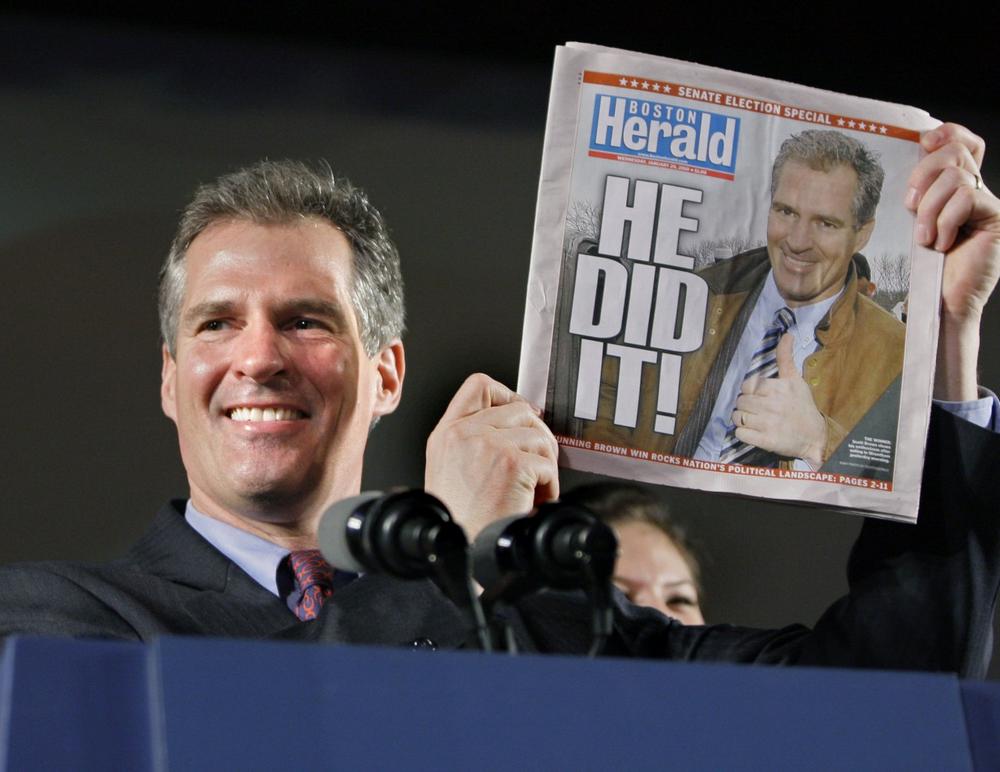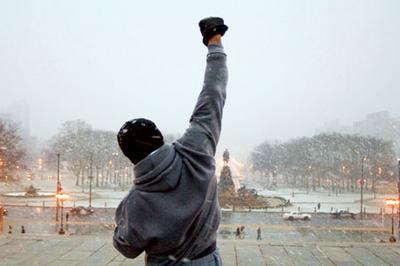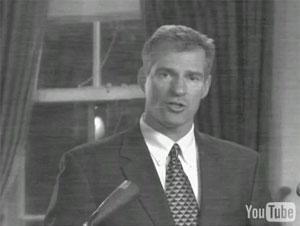Advertisement
How He Did It: Behind The Scott Brown Win

It's a playbook that Republican Party strategists nationwide will study for years. How did a little-known, conservative state senator manage to beat a Democratic attorney general to get himself elected to the "Ted Kennedy seat" in deep-blue Massachusetts?
One man is given much of the behind-the-scenes credit. Eric Fehrnstrom is being hailed by many on the right as the new "genius strategist" of the GOP. In an interview with WBUR, Fehrnstrom revealed what he considers to the turning points for the Brown campaign, the one fatal error of the Coakley campaign, and the moment he knew they really had a shot.
What follows is a transcription of Fehrnstrom's remarks.
A Winning Spirit
Scott Brown was one of the most disciplined candidates I've ever encountered. And if there's ever an example of someone willing himself to victory, this would be it.
The Rocky Factor

I think they felt it could never happen in Massachusetts. I mean, that's what adds to the fairy-tale aspect of this story. In many ways, Scott is the Rocky Balboa of Massachusetts politics. But he actually did Rocky one better by winning the match.
So, I think people appreciated the fact that, in Scott Brown, they had a regular, kind of working-man candidate who was out there in 20-degree temperatures, shaking hands outside Fenway Park and Boston Garden. It all added to a sense that, This guy is different than what I'm used to.
The other important factor is on national security, the issue of how you treat terrorists — whether as an enemy combatant, as Scott preferred, or as an ordinary criminal, as Martha Coakley advocated — was a very potent issue, particularly following the attempted bombing of the Northwest plane in Detroit on Christmas Day.
"In many ways, Scott is the Rocky Balboa of Massachusetts politics. But he actually did Rocky one better by winning the match."
-- Eric Fehrnstrom, campaign strategist
Once that happened, we found that Scott was beginning to pick up more and more traction. And, in combination with health care, that Scott could be the 41st vote, the last-gasp attempt to restart that health care debate and take it back to square one.
It's what began to fuel his candidacy in that last 20 to 21 days of the race.
The Risky Move
Another crucial moment for us was the decision to air the JFK ad.

At that point we hadn't put up any broadcast ads, and we were in between Christmas and New Year; we knew we were facing a Democratic opponent whose strategy consisted of watching the calendar pages just flip by. She wasn't campaigning.
So we made the calculation that putting the JFK ad up was worth the risk, the risk being that people would wonder, Who was this audacious state senator — a Republican, no less — who would dare compare himself to Ted Kennedy?
It wasn't until two days before Christmas, and a week before we aired the JFK ad, that we finally got some polling data that Scott actually had a chance of winning this thing.
Coakley's Big Mistake
To allow Washington operatives to come in in the final days of the race, and to take over the campaign and make the decision — I assume it was their decision — to go entirely negative on Scott Brown. And I think that did something damaging to Martha Coakley's brand.
Editor's note: Fehrnstrom said Brown is not yet looking at 2012 and re-election, but added that Brown will begin with a formidable war chest — $4 to $6 million — left over from this campaign.
This program aired on January 25, 2010. The audio for this program is not available.